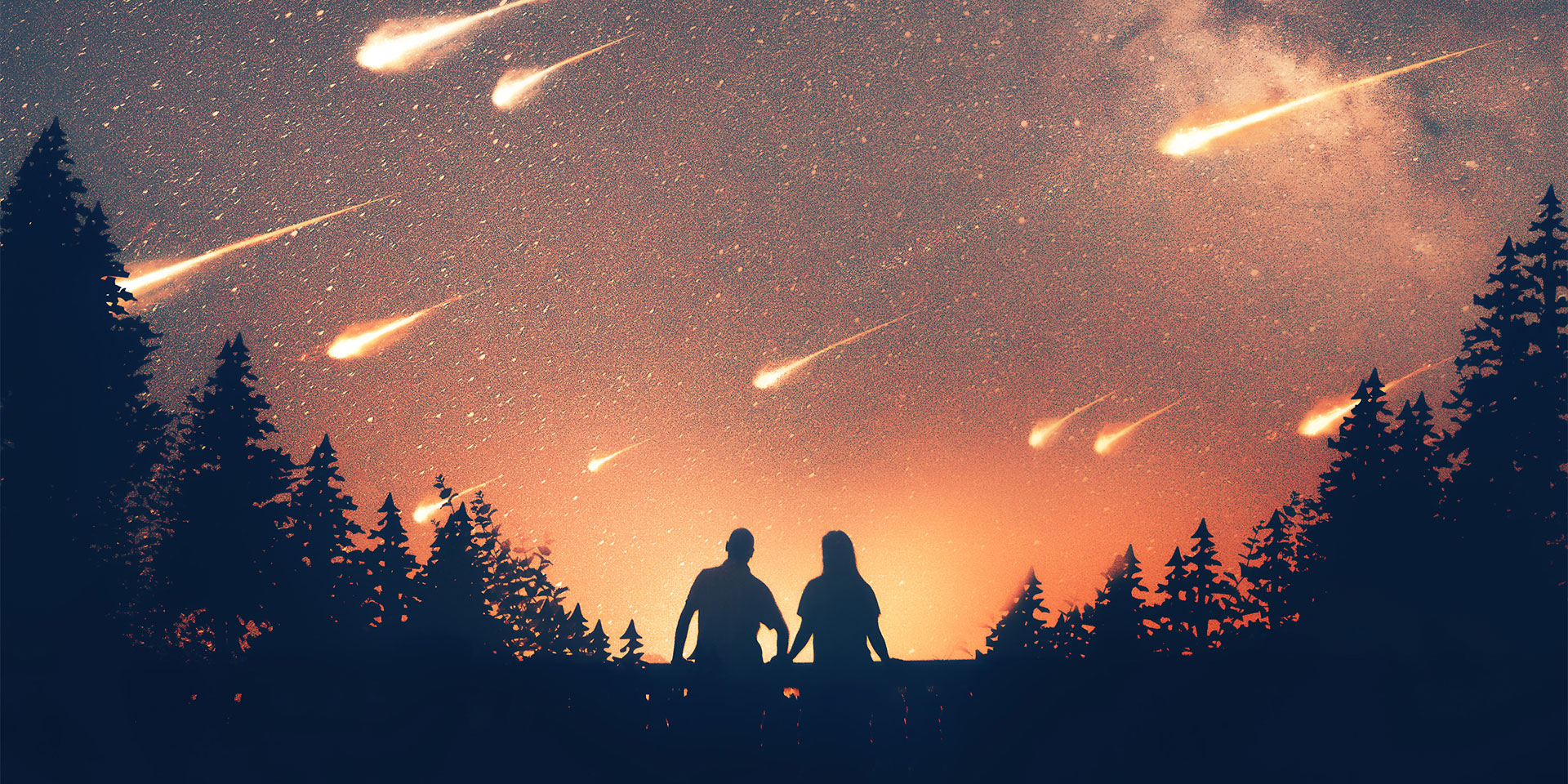A good survey of people’s thoughts on the end times would not seek to find out whether people believe the world will end or not. Rather, it would seek to know what their thoughts are on when and how the end will come. Regardless of the source of their belief—religious or secular—most people have come to see the idea of the end of the world as a foregone conclusion.
The general feeling is that nobody can use a valid argument to refute the conclusion that the planet will come to an end at some point. “Everything in the universe has a death clock”[1], said Ivanni Delgado, referring to the death of the Sun— the event which scientists today view as the most probable cause for the end of planet Earth.[2]
However, seeing as such an outcome is projected by scientists in the distant future, many have used statistical analysis to consider[3] the probability of mankind disappearing in the meantime.
Can we calculate the extinction risk?
“The risk of extinction is currently 3% per decade, while the risk of a lesser apocalyptic event, the collapse of civilization, is triple that, about 10% per decade, or 1% per year. The magnitude of these risks is comparable to ordinary perils that insurance companies underwrite”[4], writes Willard Wells, doctor in physics at Caltech University, trying to show that the danger is real and worth considering.
Furthermore, the risks are proportional to the population, Wells says. If the population is doubled, the risks are doubled, too. Apart from a case in which the global population plummets sometime soon, says Wells, “a near-extinction event will occur during the lifetime of today’s infants”[5]. “The chance is 70% that the population will crash in a cataclysm that will kill billions and shut down the hazardous technology”[6]. According to the physicist, this also means that there is a 70% chance that mankind will continue its existence for a long time after this cataclysm, with few survivors, in a different world, free from the risks created by the current civilization. Wells’ reputation is solid, and his calculations have been well-received and appreciated by other scientists[7].
The sceptic’s perspective
Wells’ conclusions counterbalance sceptical opinions, like that of Paul Kurtz, considered to be the father of secular humanism. At some point, it seemed as though Kurtz had solved the problem of apocalypses. Kurtz’s conclusion can be summarized as follows: after none of the predicted disasters—such as global famine, global population explosion, unbreathable atmosphere, the disappearance of marine life forms, the collapse of the global financial system, nuclear war, or religious apocalypses—have taken place according to the many predictions made, it is time to make greater use of our critical thinking[8]. People should be educated, concludes Kurtz, and keep their distance from apocalyptic predictions, for the simple reason that everything that has so far been predicted has not come to pass.
No doubt, Kurtz’s argument is a strong one to convince us to be rational and reserved when we are presented with apocalyptic predictions. At the same time, we must be aware, in the spirit of critical thinking, that no matter how long the list of erroneous predictions, it does not necessarily follow that there will be no apocalypse in the future.
The bigger picture
Many people seem to share the idea of the end of the world. Sociological studies show that an overwhelming majority of people believe in an end of the world (for instance, only around 20% of Americans do not believe in an apocalypse[9]) and many believe it will happen soon. A study conducted by Ipsos in 2012 has shown that 14% of the global population believes that the end of the world will take place in their generation[10]. The highest places in this ranking, with 22% of the population, are occupied by Turkey and the United States. Two other studies conducted by YouGov[11] in 2015 and 2020 show that the percentage of those who believed the end will come in their lifetime was 31% and 29% respectively[12].
Why are we so preoccupied with the end of the world?
It all comes from our need for purpose, author Clay Routledge believes. “Apocalyptic fears and fantasies, whether explicitly religious or supposedly secular, are at least partially rooted in existential concerns about meaning.”[13] For various reasons and in different ways, the end of the world is linked to the way in which we synthesise the meaning of our lives: some wait for immortality, others for a reset of life on Earth, or the opportunity to be heroes. What they all have in common, believes Routledge, is the desire to matter.
In this case, the surprise—or the discovery, as some might call it—is that the biblical apocalypse may not hold the answers that make sense to people. The Bible points out that each of us matter to God, and that our purpose is to regain our moral purity and the eternity of life that was offered to man in Eden. This is not believable in the midst of man’s battle with his own meaninglessness. At least, this is how one might read the current tendency to push the biblical apocalypse to the background while keeping secular apocalypses in the foreground.
Thus, more people currently believe in an apocalypse caused by natural disasters or human actions (19% in pandemics, 19% in climate change, and 17% in nuclear war, according to a YouGov recent study[14]) than a religious apocalypse (13% of Americans believe there will be a biblical apocalypse[15]).
These beliefs most likely show that our preoccupation with the apocalypse comes down to a wide array of reasons[16], including the fear of the unknown and uncertainty (which may lead to the attempt to predict and control the future) and a fatalism fuelled by the disappointment in human nature which seeks validation from other people who think in a similar way.
Regarded from this perspective, a preoccupation with the end of the world may be classified either as a coping mechanism used in the battle against different types of anxiety, or as phobias or obsessions which demand that we address them. The more numerous they are, the more they need to be addressed. None of these options, therefore, are desirable. But how can we guard ourselves against harmful apocalyptic interpretations?
Where scepticism meets faith
First, Paul Kurtz was right when he said that we must be very rational and careful when evaluating apocalyptic predictions. In fact, Jesus Christ Himself imparted a message of this sort. If we summarise, in three ideas, what Jesus taught regarding the end of the world, two of these are warnings against false ideas and predictions about the end times.
First, Jesus issued warnings against the temptation to establish or identify data (Mark 13:32) about the world’s end, and about His return (events which are connected in the Bible).
Also, Jesus warned that there will be all kinds of rumours and fake news in the final days (Matthew 24:24) which must not be believed. In fact, according to Jesus, a believer who waits for Jesus’ return (and, implicitly, for the end of the world), should instead be preoccupied with his responsibility to serve others (Luke 12:42-43), and be aware of manipulation and deceit which can distract one’s attention from this mission (Matthew 24:4). Secondly, Jesus clarified that the Earth will not come to an end because of a global cataclysm caused by nature or man (Matthew 24:6).[17]
Therefore, from a secular perspective, Jesus should be appreciated for the balanced position He took in dealing with the subject of the apocalypse. In this context, we should evaluate His third idea, His prediction regarding the end of the world as we know it: the Earth will be regenerated when God’s Son returns to eliminate sin and suffering (Acts 1:11, Revelation 21:1-4). In other words, the apocalypse announced by Jesus is in fact a gospel, and good news (Revelation 14:6-7). In the Bible, the end of world history is God’s promise. It gives people meaning, shielding them from panic, phobias, and obsessions. How then did the biblical apocalypse come to instil fear?
Solutions to the fear of the end
People have a strong self-preservation instinct, which lays the foundation for one of our deepest fears—the fear of death, or the fear of human beings’ eternal disappearance. Unfortunately, to generate change in people’s lives, representatives of the Church have often preached in an oppressive way, causing people to dread the Judgement Day, the end of the world, and Jesus’ return. The Church has thus played its role in the process by which the apocalypse became synonymous with the world’s terrifying end, instead of remaining what it is in the New Testament—the discovery and revelation of Jesus Christ. Understanding the true revelation of Jesus Christ, that was transmitted to us as good news, is thus part of the solution for our apocalyptic anxieties.
Regarding the wider range of phobias or obsessions produced by secular apocalypses, specialists suggest a few protection measures. For those who fear that the earth will self-destruct, it can be helpful to get involved in actions that have a positive impact on the planet, even if only on a personal level (ecology, reducing pollution, food waste and water resources, and so on). Then, exercising one’s ability to also focus on other important things in life[18], training our critical thinking, and treating phobias in general, is also useful for preventing and treating anxieties concerning the end of the world.
To sum up, the solution to our anxieties about the end of the world is not denying them, but relating correctly to them, which might even turn them into a source of positive change. For instance, being aware of the existence of an end may help us to proactively dedicate more time and energy to our family and friends[19].
A Christian may note with satisfaction that all these measures are in agreement with the principles transmitted and lived out by Jesus. For a Christ-follower, the end of history does not have so much to do with apocalypticism as it does with Jesus’ return, the end of the cycle of suffering and death, and the coming of a new world and new life.
Furthermore, God’s perceived delay to reach this outcome is yet another proof that He does not have the impulse to rush to Judgement Day. His delay is not a delay, but is similar to the attitude of the non-combatant American hero, Desmond Doss: “I want to save one more!” From this point of view, God does not wait for the Judgement Day but, aware of its necessity, extends the time of grace in which He continues to give everyone a chance to be saved.
And when the world as we know it comes to an end, those who trust God will discover a new life, without suffering or death. This perspective is not a source of anxiety. It is, in fact, a comfort to all who wish to avoid the frightening apocalypse.
Norel Iacob is Editor in Chief of ST Network and Semnele timpului.



















